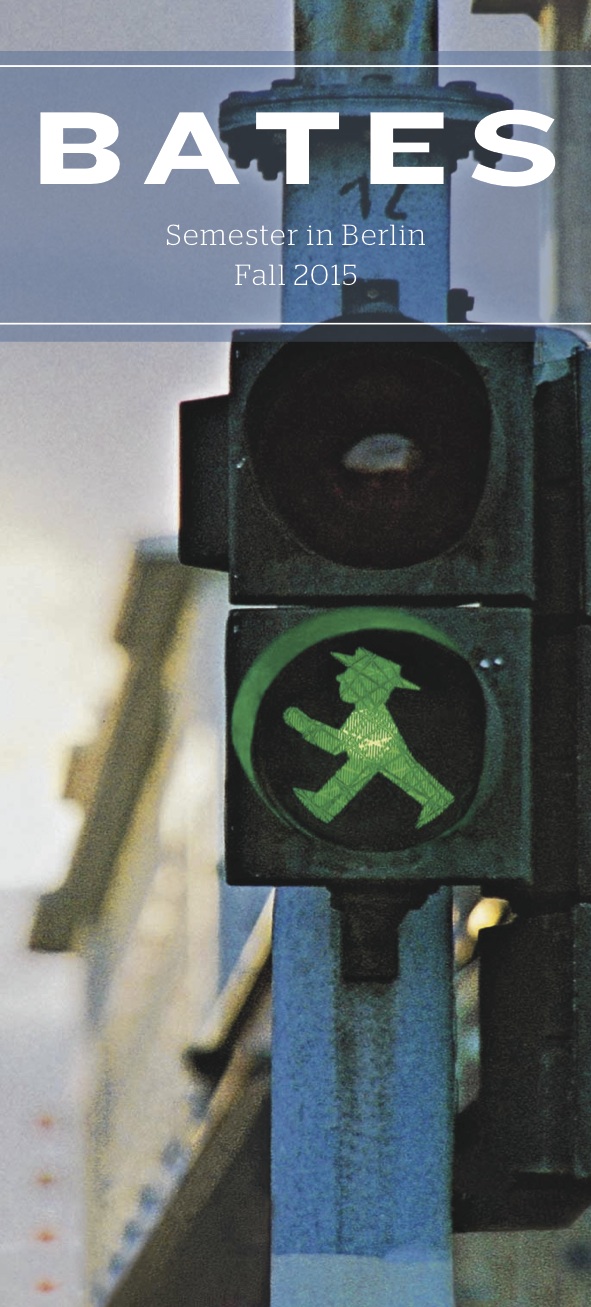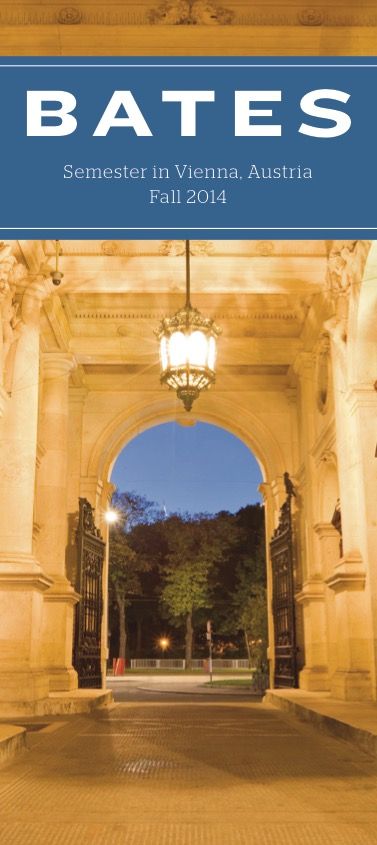Study Abroad
Study abroad in a German-speaking country:
If you would like to study abroad in a German-speaking country, you are required to have completed the equivalent of two years of college-level study of German at the time of the program start.
“Equivalent” means that if you skip over the first two years and then complete an advanced German course at Bates (for example, GER 233), you will have the equivalent of five semesters of German study, and you can go abroad. This situation would apply if you have had German in high school or if you are a heritage speaker of German. Please remember to contact the instructor who teaches GER 233, or any course in German above GER 233, to get permission to enroll in the course.
What if I don’t speak German at all?
If you don’t have any previous knowledge of German and you would like to study in a German-speaking country for a semester or a year during your junior year at Bates, you should take GER 101 in the fall of your freshman year. You can continue with GER 102 in the Winter semester of your freshman year and then take GER 201 and GER 202 in your sophomore year. You will then complete two years of college-level study of German at the time of the program start.
Students without these proficiencies may petition the Off-Campus Study Committee for an exception. See also the policies of the Center for Global Education for more information: https://www.bates.edu/global-education/off-campusstudy/questions/#language
What programs in the German-speaking countries can I choose?
Bates-approved programs in Germany and Austria are listed on the webpage of the Center for Global Education:
https://axis.bates.edu/ocsp/europe/germany
https://axis.bates.edu/ocsp/europe/austria
Occasionally, students identify a university or program that is not on the list that they think better suits their academic interests. You are welcome to petition for approval to study in this program or university, recognizing that the academic program of the university or program must be demonstrably better than those already listed by Bates. See the more detailed description of the petition process on the webpage of the Center for Global Education: https://www.bates.edu/global-education/off-campusstudy/questions/#petition
Other students’ impressions may help you make a decision, too. You can read study abroad testimonials here.
Can I use the courses from my study abroad for my Major or Minor in German?
Yes, you can. Before the start of your program, you must meet or e-mail your German professor to discuss the course or courses that you would like to apply for your major. Upon your return to Bates, together with your German professor, you will need to fill out the Major Approval Form or Minor Approval Form (available from here) that specifies which courses you took abroad will be applied toward your German degree. A copy of the form should be submitted to the Center for Global Education.
Do I need to know German to participate in the Fall Semester Abroad program in Germany?
The Fall Semester Abroad (FSA) programs are open to all Bates students, including entering students and sophomores. No prior study or knowledge of German is necessary for participation. Please check back this page for announcements about the upcoming FSAs. You can also take a look at the previous FSA programs in Berlin in 2015 and in Vienna in 2014 (click the flyers on the right).
Study abroad in Russia or in the European Union:
Bates-approved programs in Russia are listed on the webpage of the Center for Global Education:
https://axis.bates.edu/ocsp/europe/russia
Occasionally, students identify a university or program that is not on the list that they think better suits their academic interests. You are welcome to petition for approval to study in this program or university, recognizing that the academic program of the university or program must be demonstrably better than those already listed by Bates. See the more detailed description of the petition process on the webpage of the Center for Global Education: https://www.bates.edu/global-education/off-campusstudy/questions/#petition
Other students’ impressions may help you make a decision, too. You can read study abroad testimonials here.
What if I don’t want to study in Russia?
If you don’t want to go to Russia, you can still study Russian in the European Union. “Learn Russian in the EU” is a joint initiative of the Department of Russian and Slavic Linguistics at Daugavpils University and Training Center LatInSoft established in 2004. Daugavpils University is the foremost academic and research institution in Eastern Latvia.
“Learn Russian in the EU” provides a broad range of study programs in the Russian language, literature, culture, history, political science, Eastern European studies, and other areas. You can enroll for one semester or two consecutive semesters of study.
Please talk with your Russian professor about your study abroad options.

